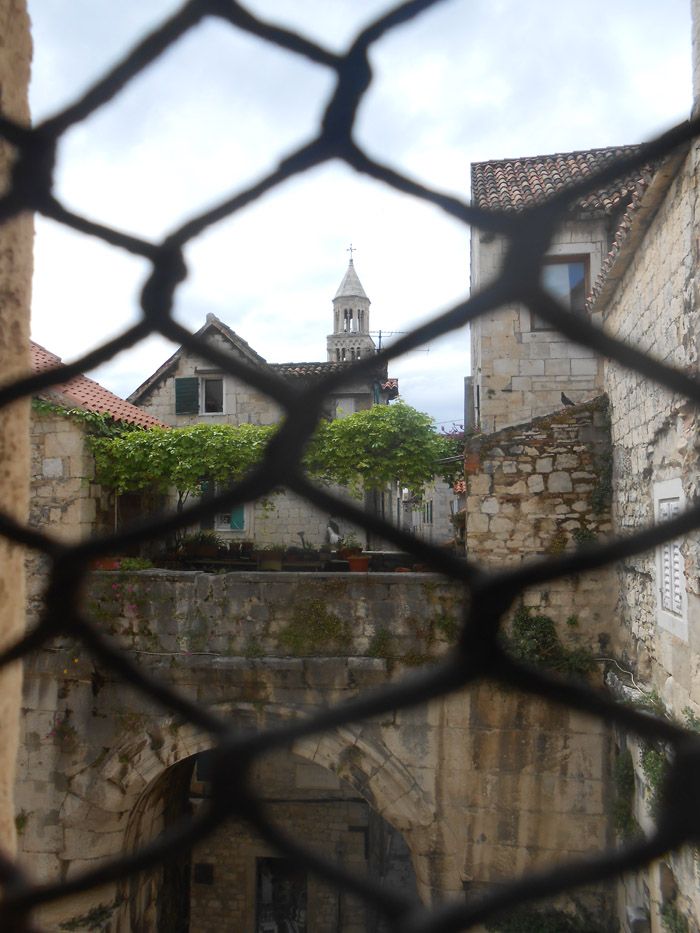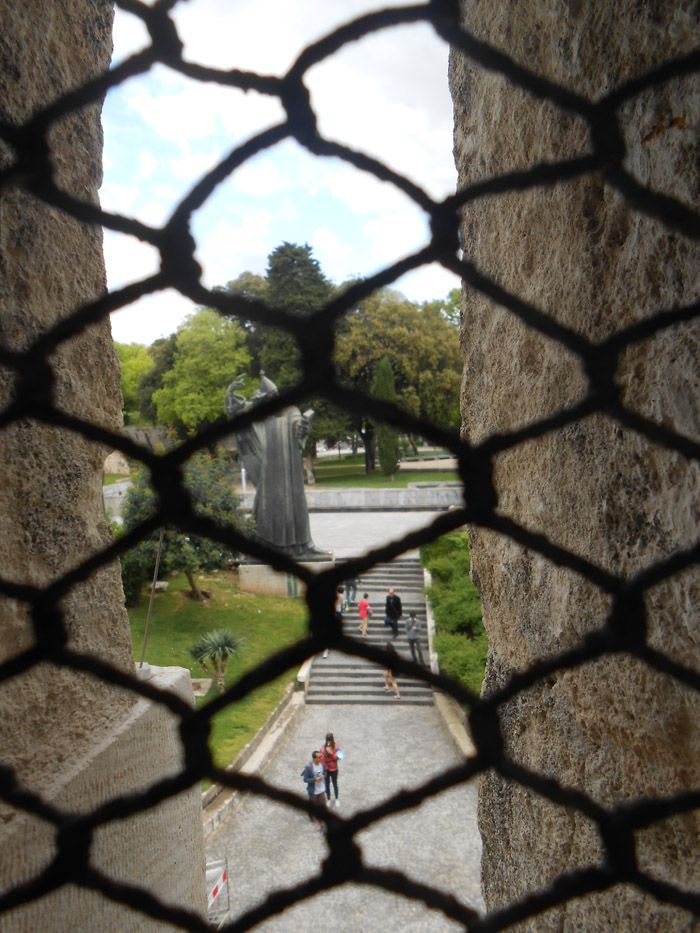Maybe the most often sentence beginning you can hear in Split, when listening some local explaining beauties of his or her city by far is "This is the most...". And than goes "beautiful", "oldest", "famous", just pick one. For example, Split cathedral of Saint Domnius is probably the oldest building serving as a cathedral, since it's actually converted mausoleum of Roman emperor Diocletian.
But there is one hidden gem that can be the other extreme in this race for greatness. Just above the northern gate of the Diocletian's palace, called Golden Gate, in what once was the Roman guardhouse, there is probably the narrowest church you have ever seen. It's called Saint Martin, and is only 1.64 meters wide and 10 meters long, settled within the Palace's northern wall. The only trace of this church from the outside, apart from stairs leading to it through old Dominican monastery, are miniature windows visible from the inner yard of the Golden Gate, hidden in once bigger niches, now covered with bricks.
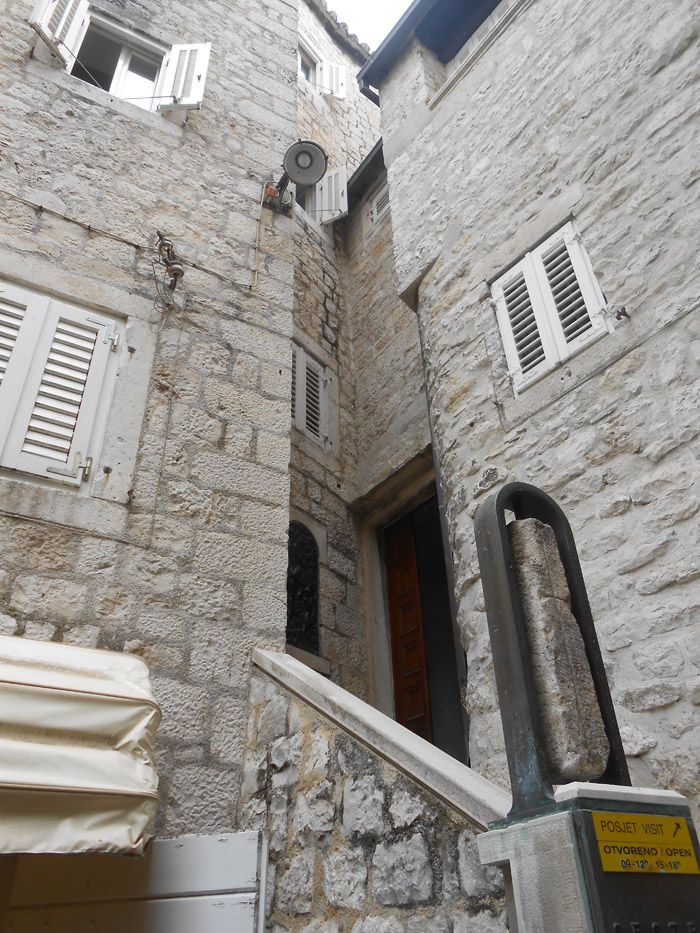
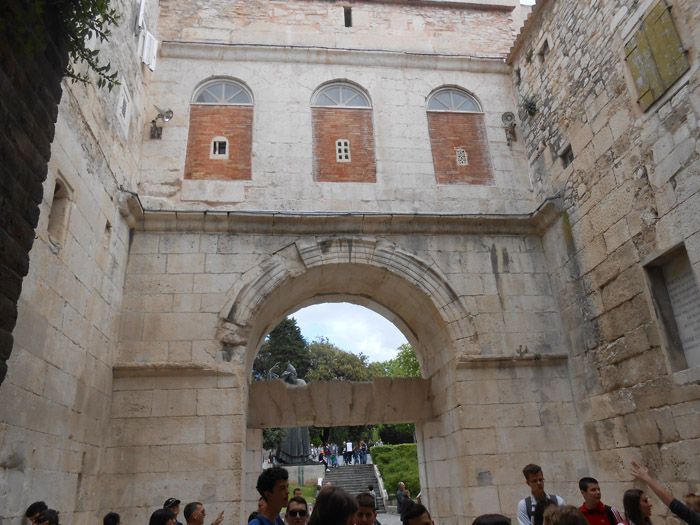
And Saint Martin's importance very much exceeds its size. It was built in the ninth century, during reign of old Croatian duke Trpimir, and actually it was the first Christian church to be built within the Diocletian's Palace. Beside Saint Martin, church was originaly dedicated to the Virgin Mary, and pope Gregory. From that age dates the most important piece in the church, a 9th century architrave with carved names of Trpimir's chaplains Dominic and Martin.
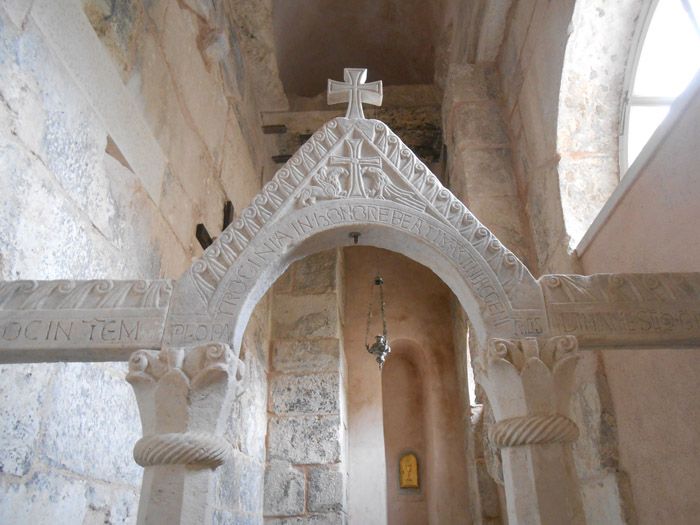
After monastery was abandoned due to a medieval black death epidemic, church was forgoten for centuries, until in late 1800s founder of Croatian archeology father Frane Bulić rediscovered it and lead its reconstruction. During excavations he even discovered a grave of Saint Martin's builder, chaplain Dominic.
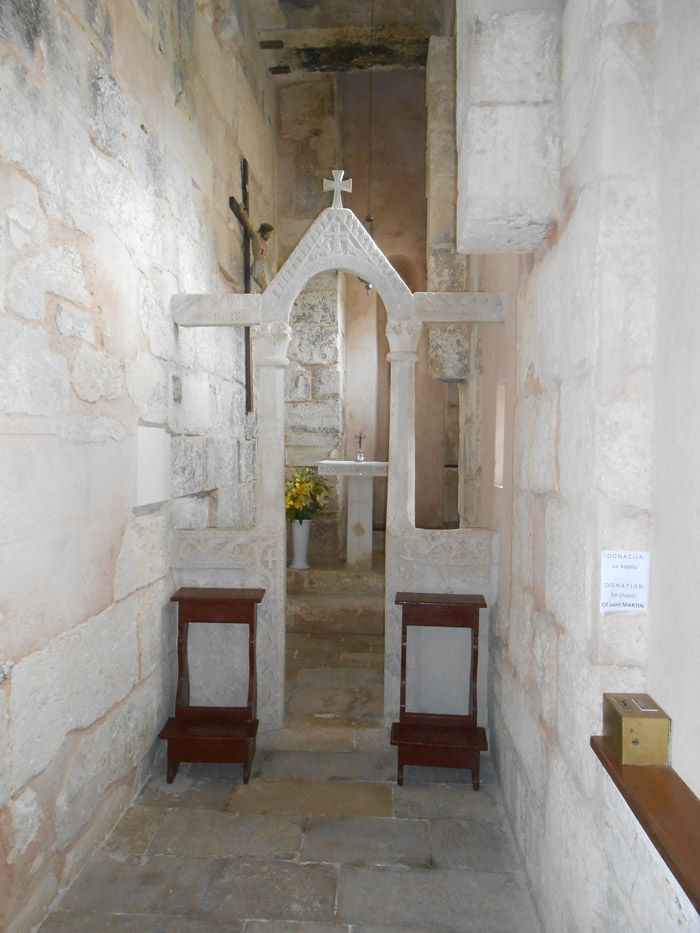
Even many locals don't know about this church, and visit offers really one of a kind view to the monument of Gregory of Nin, or to cathedral's bell tower on the other side. And all this visible just if you turn from one side to another, within barely two steps. Of course, being inside the ancient Roman palace's walls is unprecendent.